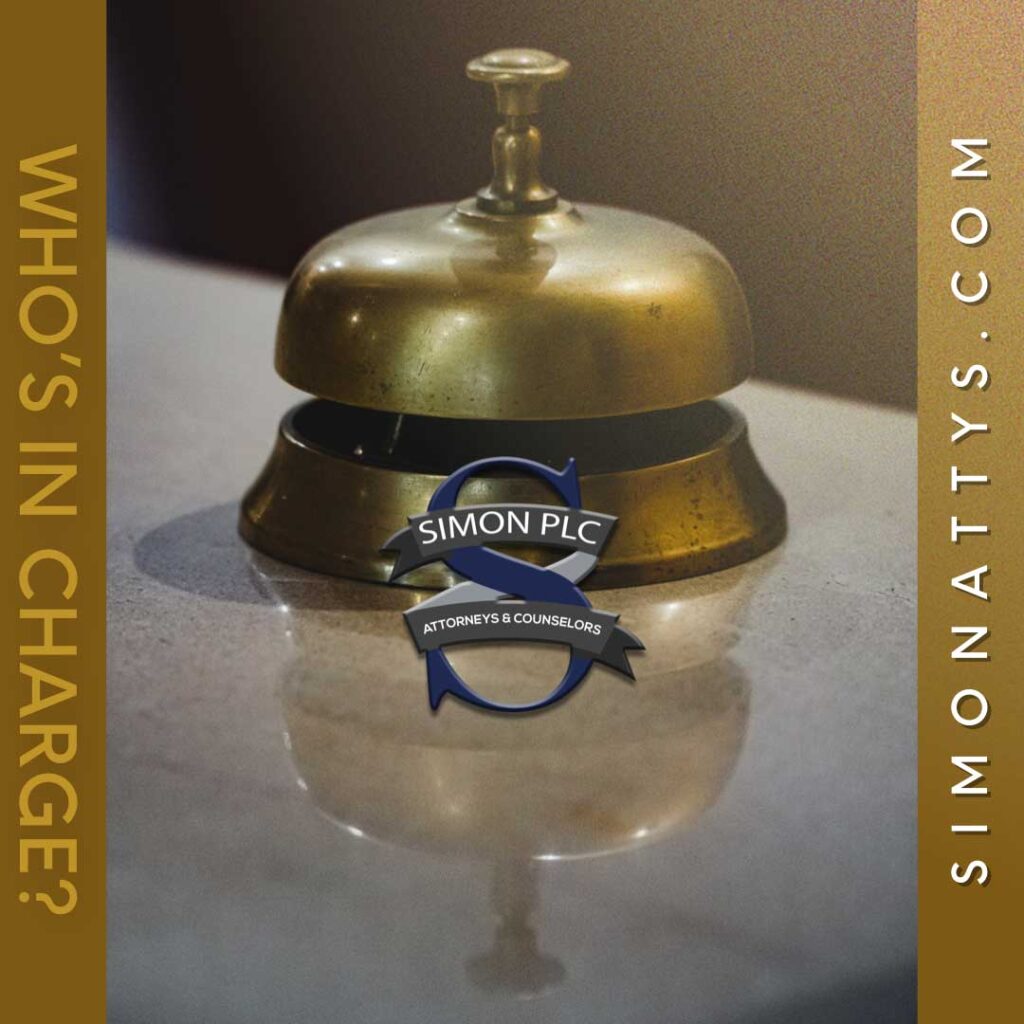Simon PLC Attorneys & Counselors – May 2023 Memorandum
Service of Process – Who is in charge of the office?
Troy, MI. The Michigan Court Rules provide a process for individuals to file a complaint in court in order to seek redress for grievances. This process is important for ensuring that individuals are able to seek justice and hold others accountable for their actions. The service of complaint is an important part of this process, as it ensures that the defendant is aware of the complaint and has an opportunity to respond.
The service of the complaint be done in a variety of ways, including personal service, mail, or publication. Personal service is the most common method and involves physically delivering a copy of the complaint and summons to the defendant.
To properly serve a limited liability company, the complaint must be served under MCR 2.105(H). It provides in relevant part that the summons and complaint must be served on a “member or other person in charge of an office or business establishment of the limited liability company”. Similarly, service on a corporation can be effected by serving the summons and complaint on a …”person in charge of an office or business establishment of the corporation”.
Recently, the Michigan Court of Appeals in Tindle v. Legend Health had an opportunity to clarify what is meant by the phrase “person in charge of the office”. On one hand, a “person in charge of an office” could mean a person responsible for interim tasks such as answering phone calls, being responsive to persons who enter the office, and other tasks related to the practical functions of an office. On the other hand, a “person in charge of an office” might mean a person with authority and responsibility to make decisions on behalf of the office.
The Court adopted the definition that a “person in charge” is someone with responsibility and authority:
The doctrine of noscitur a sociis is a helpful guide in determining the meaning of “person in charge of an office” in this court rule. “This doctrine is premised on the notion that the meaning of statutory language, plain or not, depends on context.” Griffith ex rel Griffith v State Farm Mut Auto Ins Co, 472 Mich 521, 533; 697 NW2d 895 (2005). This context is provided by the words that “precede and those which follow” the phrase. Id. (quotation marks and citation omitted). Also, interpreting the meaning of a term derives from the principle that “words grouped in a list should be given related meaning.” Id.
…the term “person in charge of an office” is preceded by the term “member.” In addition, MCR 2.105(H)(1) lists the terms “managing member, the non-member manager, or the resident agent.” Read holistically, the meaning of MCR 2.105(H)(2) is best understood from the context of the words in MCR 2.105(H)(1). See SMK, LLC, 298 Mich App at 309. This suggests that the term “person in charge of an office” is one who has a level of authority to make decisions on behalf of an entity. Similarly, in MCR 2.105(D)(2)…the term “person in charge of an office” is preceded by the terms “director” and “trustee.” Moreover, MCR 2.105(E)(1) includes the term “person in charge of an office,” and it is preceded by the terms “officer, director, trustee, [and] agent.” Put in the context of these words, we conclude that the term “person in charge of an office” refers to a person with some authority to make decisions on behalf of an office of an entity.
The service of a complaint is an important part of the legal process in Michigan. It ensures that the defendant is aware of the complaint and has an opportunity to respond. If you are considering filing a complaint in court, it is important to understand the requirements for service of complaint in order to ensure that your case proceeds smoothly.
N.B. Not Legal Advice: Please contact us if you would like to discuss the facts and circumstances of your specific matter. Simon PLC Attorneys & Counselors expressly disclaims all liability in respect to actions taken or not taken based on any or all the contents of this memorandum. The information contained herein may not reflect current legal developments and is provided without any knowledge as to the recipient’s location, industry, identity or specific circumstances. No recipients of this content, clients or otherwise, should act, or refrain from acting, on the basis of any content included in this memorandum without seeking the appropriate legal or other professional advice on the particular facts and circumstances at issue from an attorney licensed in the jurisdiction for which the recipient’s legal issue(s) involve. The application and impact of relevant laws varies from jurisdiction to jurisdiction, and our attorneys do not seek to practice law in states, territories and foreign countries where they are not properly authorized to do so.

